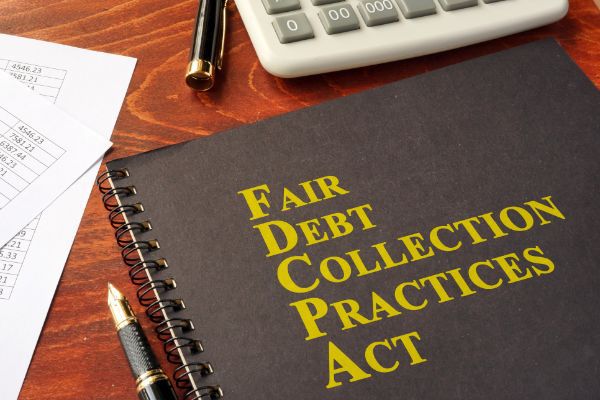When the conduct of debt collectors violates the FDCPA, and the debtor has suffered damages as a result, the debtor may sue the debt collector under the FDCPA. A lawsuit may stop any harassment but also allow the debtor to recover damages for physical and emotional harm.
What is a debt collector not legally allowed to do?
Under the Fair Debt Collection Parties Act:
- Debt collectors may not contact third-parties about a consumer’s unpaid debt without permission. They may only contact third-parties to locate a consumer-debtor.
- Debt collectors may not contact consumers at inconvenient times or places. They may not contact consumers before 8 a.m. or after 9 p.m. unless a consumer consents.
- Debt collectors may not contact consumers at work if they are aware that a consumer is not allowed to take calls at work.
- Debt collectors may not contact consumers represented by attorneys.
- Debt collectors may not call repeatedly to harass or annoy consumers.
- Debt collectors may not use obscenity, racial slurs, threats, or insults.
- Debt collectors may not falsely imply that they are attorneys or affiliated with a government agency.
- Debt collectors may not state that failure to pay will result in arrest, garnishment, or the seizure of property unless the collector fully intends to take such lawful action.
- Debt collectors may not falsely represent how much is due or the legal status of a debt.
- Debt collectors may not collect fees that they are not legally permitted to collect.
If a debt collection agency has violated a consumer’s rights under the FDCPA through repeated contact, abuse, threats, or false representation, a civil lawsuit may be brought. FDCPA allows consumers to recover damages up to $1,000 from a debt collector.
Any debt collector that violates the rights of consumers under any FDCPA section, may entitle a consumer to compensation even if no harm is suffered. The debt collector is also responsible for the plaintiff’s attorney’s fees, which means that consumers may usually enforce their FDCPA rights at no cost.
Under the FDCPA, lawsuits alleging violations of the FDCPA must be brought within one year from the date on which the violation occurs. Keep in mind that many disputes with debt collectors are resolved through arbitration. Business enterprises, especially credit card and cell phone companies, have clauses in their consumer contracts that require disputes to be settled in arbitration.
Talk to Theron Morrison and the Morrison Law Group about the timeline of Chapter 7 and Chapter 13 cases to better understand your bankruptcy options. Call 801.456.9933 today to schedule a FREE consultation. We have locations in Ogden, Logan, Sandy, and St. George to serve the residents of the counties of Weber, Cache, Salt Lake, Utah, Morgan, Davis, Washington, and surrounding areas.


